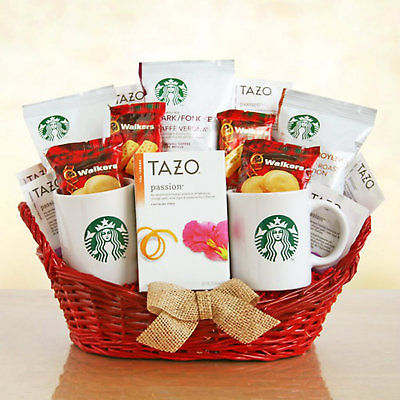



Starbucks’ evolving relationship with the tea business won’t include Tazo. The java giant announced Thursday it has entered into a definitive agreement to sell the assets of the Tazo brand, including its signature recipes, intellectual property, and inventory to Unilever for $384 million. The move will allow Starbucks to focus solely on Teavana, the company said in a press release.
“Over the past five years, we have established Teavana as our primary global brand focused on the premium tea segment. With our growth strategy for premium tea exclusively focused on Teavana, we are pleased to transition our Tazo business to Unilever,” said Kevin Johnson, president and chief executive officer, in a statement. “We continue to see significant growth in our tea business through our Teavana brand, and this transition supports our strategy to elevate the premium tea experience for our customers.”
Starbucks purchased Tazo for $8.1 million in 1999. It has since developed into an iconic brand, especially in the retail sector where it is commonly found on grocery shelves. It’s offered in packaged teas, K-Cup pods, and bottled ready-to-drink teas.
Starbucks said it will now pour its attention into the development of Teavana, which is sold in stores and featured in some outlets outside Starbucks locations. In July, Starbucks announced it planned to shutter all 379 of its Teavana retail stores around the country. The majority are expected to close by spring 2018.
Starbucks said its tea business continues to grow double-digits globally, and that the company is “well on its way to building the Teavana business to over $3B over the next five years.”
The chain said it has sold more than $1.6 billion of Teavana beverages in stores in the past 12 moths. It has also launched ready-to-drink premium Teavana Craft Iced Teas through a partnership with Anheuser-Busch InBev and plans to enter the packaged tea category in 2018.
The deal is expected to close during the fourth calendar quarter of 2017, with the complete transition taking place by the end of calendar year 2018.
The news highlighted Starbucks’ fourth-quarter earnings reveal Thursday afternoon. The company reported global comparable same-store sales growth of 2 percent, driven by a 2 percent increase in average ticket, and a 1 percent boost in transactions. Starbucks said sales grew 3 percent excluding the impact of hurricanes Harvey and Irma. The brand's stock was down more than 6 percent in after-hours trading.
In the U.S., comps rose 3 percent. China enjoyed a healthy 8 percent hike buoyed by a 7 percent increase in transactions.
Mobile order and pay reached 10 percent of all transactions in the U.S., and membership in Starbucks Rewards increased 11 percent, year-over-year, to 13.3 million active members, with member spend accounting for 36 percent of U.S. company-operated sales.
Starbucks opened 603 net new stores globally in the quarter, bringing the total count to 27,339 across 75 countries.
"Today, Starbucks reported another quarter—and year—of strong performance, with each of our business segments around the world contributing to record results,” Johnson said in a statement. “Food, beverage and digital innovation are bringing customers into our stores at the same time as ongoing operational improvements are enabling us to drive increased throughput—particularly in our busiest stores at peak—and deliver a further elevated Starbucks Experience to our customers.”
For fiscal 2017, global same-store sales grew 3 percent, comprised of a 3 percent increase in the Americas. U.S. comps were also up 3 percent.
“Starbucks delivered solid top and bottom line growth—and our strongest traffic number in the U.S. since mid-2016 - despite a difficult operating environment in both the quarter and year,” said Scott Maw, chief financial officer, in a statement. “Continued strong growth and performance from CAP demonstrates that Starbucks now has two significant profit engines driving our global returns, our North America business and the broader CAP market.”
